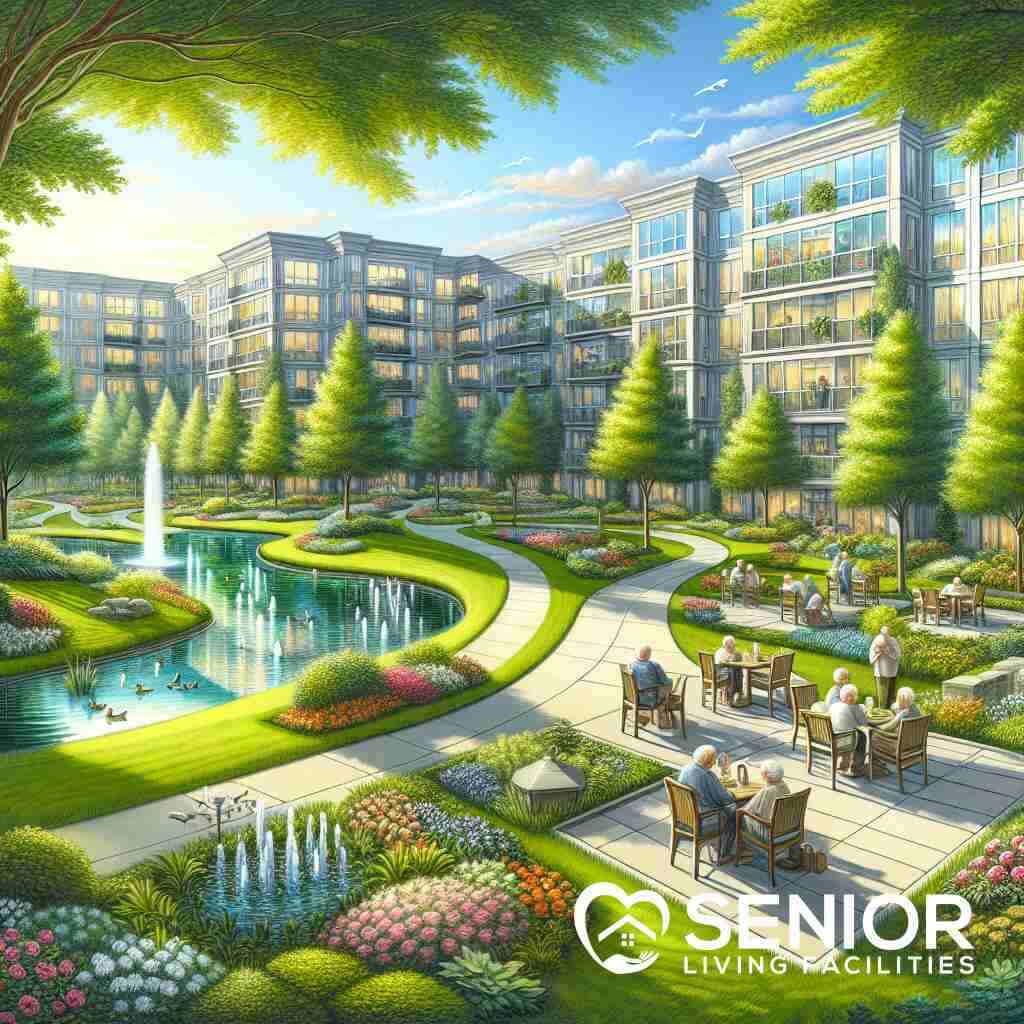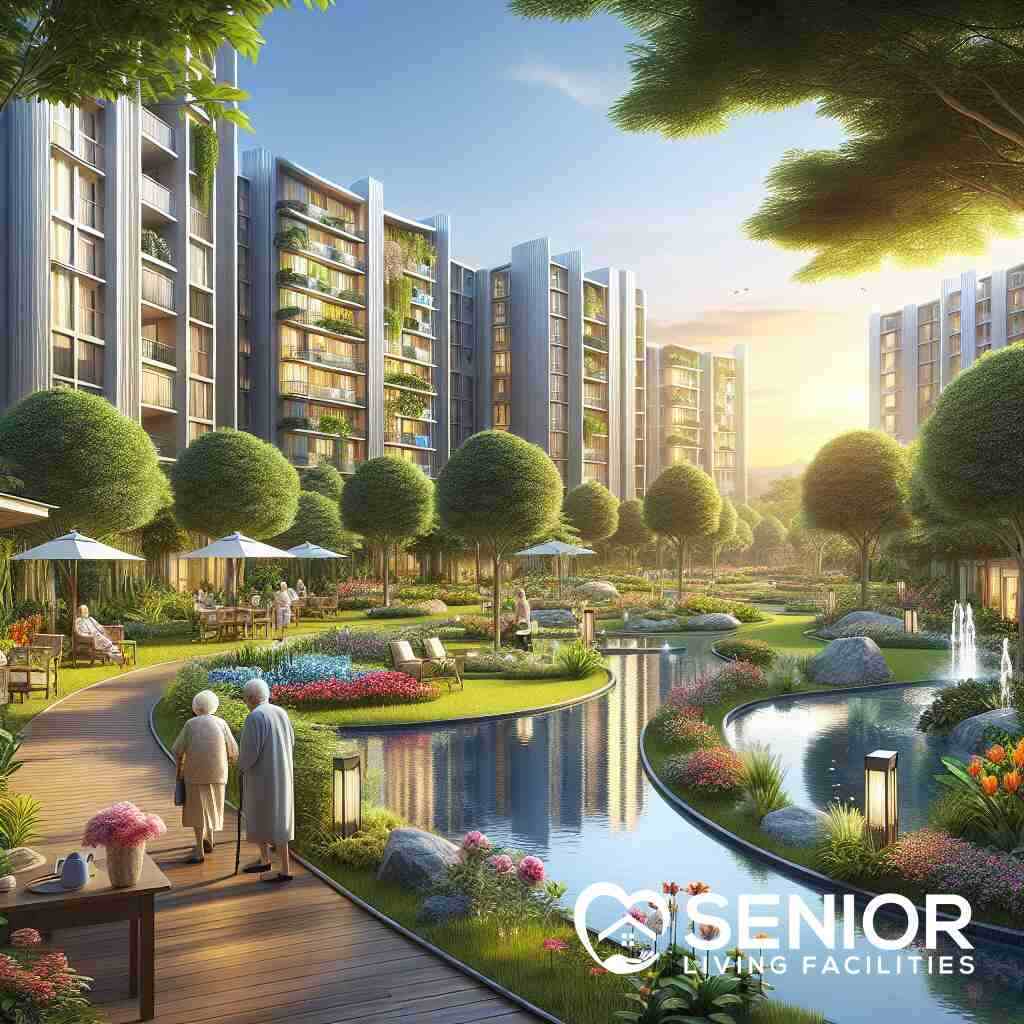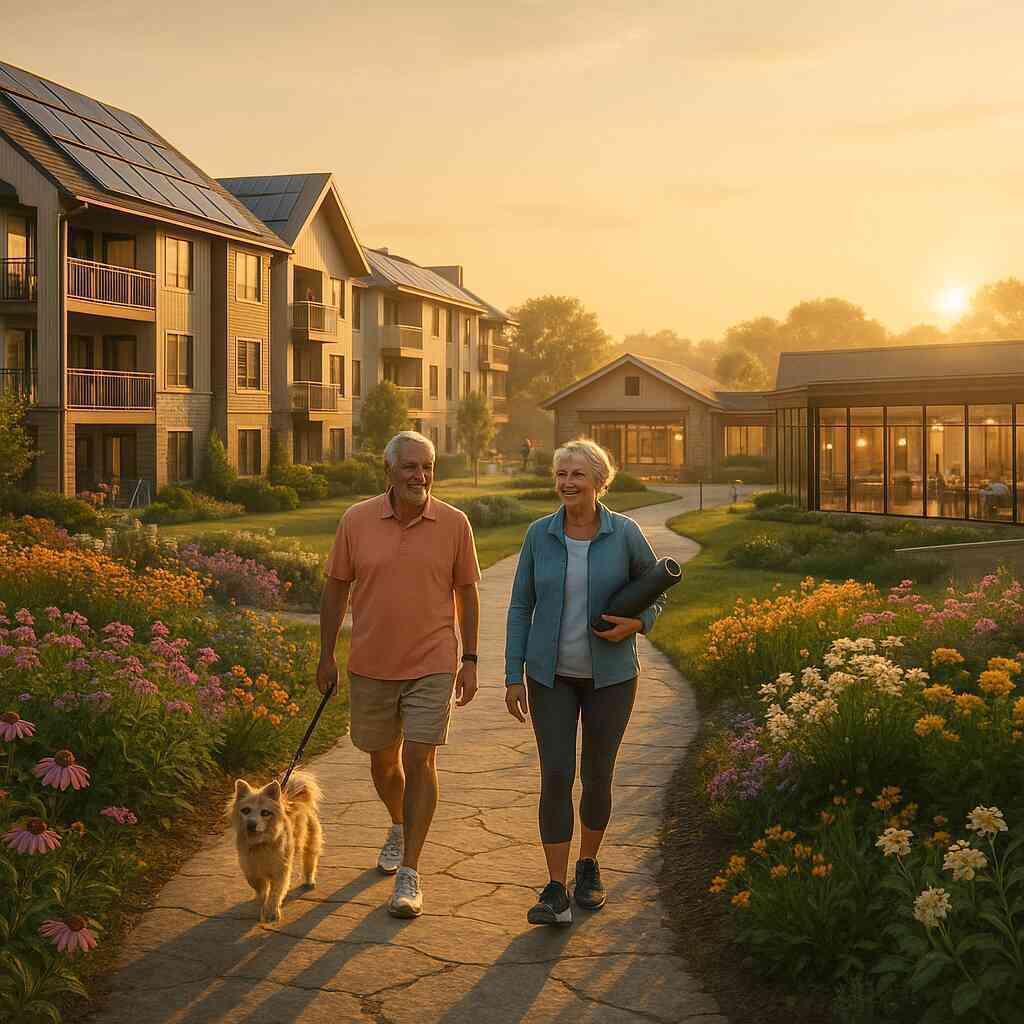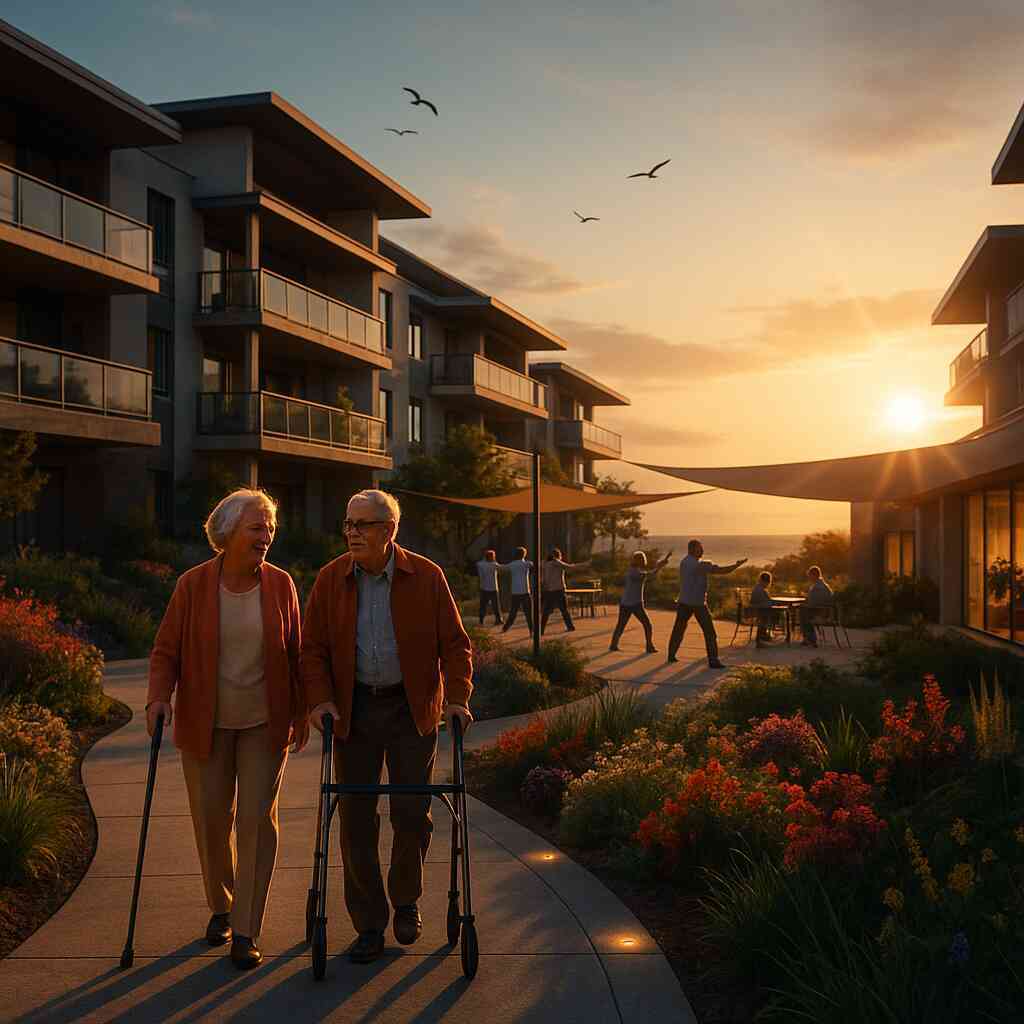
Best Practices for Enhancing Privacy in Senior Homes
October 3, 2024
Introduction: Understanding the Importance of Privacy
Why Privacy Matters in Senior Living Facilities
In the realm of senior living facilities, privacy is not merely a preference but a crucial aspect of maintaining dignity and independence for older adults. It ensures that personal boundaries are respected and contributes to the overall well-being and happiness of residents. Privacy in senior living not only encompasses the protection of personal information but also the assurance of personal space, allowing seniors to live with peace of mind. Such conditions foster an environment where trust can grow between residents and caregivers, ultimately enhancing the quality of life in these communities.
Balancing Care and Privacy Needs
Striking a balance between care and privacy is an intricate task within senior living communities. While it is essential to provide adequate support and assistance, it is equally important to preserve the independence and personal space of residents. Innovative approaches, such as designing personalized care plans that integrate privacy needs, can harmonize these requirements. This approach not only respects the senior’s autonomy but also promotes a collaborative environment where residents feel valued and respected. Understanding that each resident has unique privacy needs is vital in crafting a supportive and respectful living arrangement.
Senior Living Facilities: A Commitment to Respectful Care
Senior Living Facilities is dedicated to offering a respectful, dignified living experience for older adults across the nation. Our comprehensive approach ensures that facilities are designed to meet high standards of care and privacy. By providing a wide array of housing options tailored to individual needs, we make finding the right community easier for families and seniors. Ensuring respectful care is at the forefront of our mission; we continually strive to improve living conditions, emphasizing the importance of privacy at every step of the journey. For more insights, explore our Understanding of the value of privacy in senior living.
Recognizing Privacy Challenges in Senior Homes
Common Privacy Concerns Faced by Seniors
Seniors living in community settings often face numerous privacy challenges. Overcrowding is a prevalent issue, with shared spaces causing discomfort and a lack of anonymity. Many residents express concerns about the availability and confidentiality of their personal information, often fearing data breaches or unauthorized access. Equally, seniors may worry about intrusive surveillance systems that could undermine their privacy. Understanding and addressing these issues is crucial in creating a respectful environment that fosters dignity and trust. Caregivers and facility managers need to acknowledge and mitigate these concerns by implementing thoughtful policies and innovative solutions.
Identifying Vulnerable Areas in Senior Living Spaces
Identifying the most vulnerable areas within senior living facilities is vital for privacy protection. Shared bathrooms and communal areas often pose significant risks, where personal boundaries can be easily overlooked. Personal rooms or apartments may also lack sufficient privacy features, such as lockable storage for sensitive belongings. Additionally, dining and recreation areas might not provide adequate options for residents seeking solitude or discretion during interactions. Clear zoning of public and private spaces, as well as rigorous assessments of facility designs, is necessary to enhance privacy measures. Incorporating considerations for designing comfortable spaces for seniors can further mitigate these vulnerabilities Designing comfortable spaces for seniors.
Overcoming Privacy Hurdles in Community Living
Community living poses unique privacy challenges that require innovative solutions. For instance, establishing protocols that allow for personalization of living spaces can significantly improve individual privacy. Offering options for flexible room setups or incorporating privacy-enhancing elements such as room dividers can help residents carve out personal sanctuaries. Additionally, training staff on privacy awareness is essential in maintaining confidentiality and respecting residents’ boundaries. Senior Living Wellness Programs Near You. Encouraging open communication between residents and management facilitates a culture where privacy concerns are heard and addressed efficiently. By fostering an environment of respect and protection, facilities can successfully navigate the difficulties associated with community living while safeguarding seniors’ privacy and dignity.
Designing Private and Comfortable Senior Spaces
Effective Space Planning for Privacy
Effective space planning is the cornerstone of creating private and comfortable environments in senior living facilities. It involves more than just allocating rooms; it requires thoughtful design that considers the flow of movement and personal space requirements of each resident. Privacy can be enhanced by the strategic placement of rooms to minimize shared walls, the use of soundproof materials, and layout adjustments that prevent unintentional intrusions. Furthermore, implementing privacy zones-areas designated for quiet and solitude-can help residents find reprieve from community life. Employing innovative architectural solutions like modular walls or flexible partitions can also empower seniors to modify their living spaces according to their privacy needs. These practices not only lead to privacy improvements in senior housing near me but also ensure that the seniors’ dignity and autonomy are upheld in shared environments.
Incorporating Privacy in Assisted Living Plans
Incorporating privacy into assisted living plans requires a harmonious blend of structural design and personalized care strategies. Residents in assisted living often have diverse needs, and their demand for privacy can vary significantly. Creating guidelines for senior residents’ privacy is essential in these settings. Individualized privacy plans can be developed in collaboration with residents, taking into account their specific preferences and health needs. Infrastructural elements like private alcoves, lockable closets, and curtains or doors for rooms can be introduced to bolster personal space.
Moreover, communication with residents during the planning phase ensures their voices are integral to design decisions. Such an inclusive approach not only fortifies privacy but fosters a sense of ownership among residents over their living conditions. Senior living facilities must balance safety requirements with privacy needs in these plans to achieve resident confidentiality in care procedures.
Enhancing Individual Spaces in Senior Apartments
Enhancing individual spaces in senior apartments focuses on transforming living areas into personal sanctuaries. This can be achieved by allowing customization of apartments to reflect personal tastes and ensuring that residents have autonomy over their environment. Designing private spaces in senior apartments involves the integration of adjustable furniture, personal decor options, and technological enhancements that cater to privacy preferences. Practical solutions like noise-canceling features and visual barriers ensure that apartments remain confidential and shielded from the hustle and bustle of communal life. Apartments should also be equipped with smart technologies that aid in personal security and convenience, creating a seamless experience for seniors. This design philosophy not only enriches the living experience but also aligns with modern expectations of privacy and comfort, embodying a commitment to creating a secure, resident-focused environment that champions individual choice and control. To explore more on this, refer to how designing private spaces in senior apartments can affect the overall living experience.
Implementing Technology for Privacy Enhancement
Secure Communication Tools for Senior Residents
Secure communication is essential in today’s digital age, especially for senior residents who value confidentiality and ease of use. By integrating advanced communication tools designed with security in mind, senior living facilities can ensure that residents maintain their privacy while staying connected. Tools such as encrypted messaging apps and secure video conferencing platforms are ideal for facilitating safe communication without compromising personal data. These technologies not only protect against eavesdropping and data breaches but also enhance overall privacy in senior living environments. Emphasizing cyber-safety protocols empowers seniors to use technology confidently, knowing their interactions are safeguarded against unauthorized access. Explore more about secure communication for senior residents and its impact on enhancing privacy.
Cybersecurity in Senior Living Facilities
Senior living facilities are increasingly relying on digital solutions, making robust cybersecurity measures an absolute necessity. With personal and medical data frequently being transmitted and stored electronically, it is crucial to implement comprehensive security measures to protect this sensitive information. Cybersecurity in these facilities involves deploying firewalls, regularly updating software, and conducting routine security audits. Training staff to recognize and respond to potential threats also forms a vital component of privacy protection. These steps minimize the risks associated with cyber breaches, ensuring that seniors’ data remains confidential. In doing so, facilities can uphold trust, demonstrating a firm commitment to resident privacy in an increasingly interconnected world.
Privacy Management through Smart Home Technologies
Smart home technologies revolutionize privacy management in senior living spaces by offering a customizable and controlled environment that adapts to individual privacy needs. Features such as automated lighting, smart locks, and surveillance systems allow seniors to regulate their living space to enhance personal safety and comfort. These technologies are designed to be user-friendly, enabling seniors to configure their privacy settings easily without requiring technical expertise. Furthermore, the use of smart home technology extends beyond convenience, as it actively supports the safeguarding of private information within the residence. By leveraging such innovative solutions, senior living facilities not only improve privacy but also contribute to creating a safe and private environment in retirement homes.
Establishing Policies for Personal Privacy
Creating Comprehensive Privacy Protocols
Creating comprehensive privacy protocols in senior living facilities is essential to safeguard personal privacy and uphold the dignity of residents. These protocols need to be thoughtfully designed, thoroughly covering aspects such as data protection, communication privacy, and personal space management. A well-devised policy should outline clear procedures for handling personal information and ensure that only authorized personnel have access to such data. Additionally, regular reviews and updates to these privacy protocols are necessary to keep pace with emerging technologies and threats. By establishing robust guidelines, facilities can ensure a solid framework where privacy concerns are systematically addressed, paving the way for a secure living environment.
Staff Training for Privacy Awareness
Staff training is integral to cultivating a privacy-aware culture in senior living communities. Training programs must emphasize the importance of confidentiality and equip staff with the skills to manage resident information discreetly and responsibly. Topics such as recognizing potential privacy breaches and understanding the facility’s privacy protocols should be a regular part of staff training sessions. This not only empowers staff to uphold high standards but also builds confidence among residents that their personal information is being handled with care. Moreover, interactive training modules and simulations can offer practical scenarios to help staff effectively integrate privacy principles into their daily routines, reinforcing the commitment to protect the privacy and dignity of all residents.
Ensuring Resident Confidentiality in Care Procedures
Ensuring resident confidentiality in care procedures is a cornerstone of respectful care. It involves implementing strict measures to minimize unauthorized access to personal and medical records and ensuring discussions about care plans occur in private settings. Clearly defining roles and access levels for all staff members helps in maintaining the confidentiality of residents’ information. Facilities must also adopt secure documentation practices and leverage technology to safeguard sensitive data. Regular audits and monitoring systems are vital to identifying potential confidentiality breaches. By prioritizing secure and respectful handling of personal information, senior living facilities can enhance trust and ensure a dignified living experience for their residents. For more on planning and safeguarding privacy, explore the privacy protocols for senior care.
Community Engagement for Enhanced Privacy
Fostering a Privacy-Respecting Culture
Fostering a culture that prioritizes privacy in senior living facilities is crucial to creating a respectful and secure environment. Developing a privacy-focused community engagement platform allows residents to be active participants in shaping their environment and protecting their personal space. This approach cultivates a community where privacy is cherished and prioritized. Joint workshops, seminars, or group discussions can be organized to enlighten both residents and staff about the importance of privacy and how to maintain it. This collective understanding promotes mutual respect and enhances the community’s commitment to maintaining a privacy-respecting culture. Click here for more insights on fostering community engagement and its impact on privacy.
Communication between Residents and Management
Effective communication channels between residents and management are vital for maintaining privacy. Establishing clear lines of communication helps address residents’ privacy concerns swiftly and effectively. Regular meetings, suggestion boxes, or dedicated communication apps are useful tools for encouraging dialogue and ensuring residents’ voices are heard. Management must prioritize transparency when discussing privacy policies to build trust and confidence among residents. This openness not only improves communication but also nurtures a collaborative environment where privacy enhancements can be continually refined and adapted to meet the evolving needs of the community.
Feedback Mechanisms to Address Privacy Concerns
Implementing robust feedback mechanisms is essential for addressing privacy concerns in senior living communities. These mechanisms can include surveys, confidential complaint systems, or direct feedback sessions with management. By providing multiple avenues for residents to express their concerns or suggestions, facilities can ensure that privacy enhancement is a continuous process driven by resident input. Regularly reviewing and acting upon the feedback fosters an environment of trust and reinforces the community’s commitment to protecting privacy. Such proactive engagement not only addresses current concerns but also anticipates potential challenges, leading to more comprehensive privacy management solutions. Building these mechanisms into daily operations ensures that privacy remains a dynamic and evolving priority within senior communities.
Review and Ongoing Privacy Enhancements
Periodic Assessments of Privacy Policies
Regular assessments of privacy policies in senior living facilities are critical for maintaining a secure environment that adapts to residents’ evolving needs. These evaluations ensure that every aspect of privacy protocols is up to date with current legal and technological standards. The focus should extend beyond data protection, encompassing the physical and emotional privacy of residents. Regular audits involving residents in feedback loops help identify areas needing improvement and foster trust within the community. The Rise of Technology in Senior Living Facilities for 2024. Facilities need to dedicate resources for continuous monitoring and updating privacy measures, thereby aligning with the privacy enhancements in nursing homes that safeguard residents’ dignity and confidentiality.
Adapting to New Privacy Challenges
As society evolves, new privacy challenges in senior living environments emerge, necessitating a proactive approach. This involves staying informed about technological advancements and legislative changes affecting personal privacy. Increasing digitalization poses complexities, making technologies like smart home systems pivotal in privacy enhancement. Facilities must adapt by leveraging these tools while safeguarding resident data, ensuring every new integration upholds strict privacy standards. Understanding the need for flexibility, ongoing training, and adjustments in privacy protocols helps communities remain resilient against emerging threats. By adapting to emerging privacy challenges in senior living, facilities can maintain a protective and proactive approach to residents’ privacy.
Maintaining a Safe Senior Living Environment
A safe senior living environment encompasses more than physical safety; it’s about ensuring a secure and private living experience. This involves a holistic strategy integrating secure architecture, robust cybersecurity measures, and empathic care practices that prioritize residents’ autonomy and personal boundaries. Facilities should invest in staff training programs to instill a deep understanding of resident privacy needs and effective response strategies. Moreover, regular updates to technologies, coupled with secure infrastructure, contribute significantly to a safe living atmosphere. By committing to continuous improvement and adaptation, senior living facilities not only protect residents but also fortify a peaceful and dignified environment that nurtures trust and respect. These efforts underline the importance of consistent evaluations and privacy improvements in senior housing near me to ensure ongoing privacy protection.
Conclusion: Safeguarding Dignity and Privacy in Senior Living
Ensuring a Dignified Experience for Seniors
Creating a dignified experience for seniors requires attention to their privacy needs, reflecting their intrinsic value within these communities. Senior living facilities need to integrate privacy-enhancing features into all aspects of care, ensuring personal boundaries are maintained. Simple yet effective measures like customizable living environments and respect for private communication underscore the commitment to senior dignity. Privacy considerations should be normalized in care discussions, emphasizing their critical role in enhancing the quality of life for residents. By consistently prioritizing these elements, communities can uplift the spirits of seniors, reinforcing their independence and self-worth in a nurturing environment.
Building Trust through Privacy Assurance
Trust in senior living communities is deeply intertwined with the confidence residents have in privacy assurance measures. Regular communication about privacy policies and tangible commitments to safeguarding personal data build a foundation of trust. Facilities must adopt transparent mechanisms for residents to voice their privacy concerns, knowing their feedback will be actively acknowledged and acted upon. Staff should regularly receive training on respecting and maintaining residents’ privacy, further fortifying trust. By demonstrating unwavering dedication to upholding privacy standards, senior living facilities can cultivate a community environment where transparency, security, and dignity are harmoniously aligned.
Future Perspectives on Privacy in Senior Care
Looking ahead, privacy in senior care must evolve alongside technological advancements, legal standards, and societal expectations. The future will likely see an increase in personalized privacy solutions leveraging cutting-edge technology to offer more nuanced and adaptable privacy settings. The Best Senior Living Facilities in Virginia Revealed. Embracing innovations while diligently protecting sensitive information positions senior communities at the forefront of enhancing resident well-being. Additionally, integrating insights from ongoing research, such as those found in the planning retirement community privacy, will help facilities anticipate and mitigate new privacy challenges. This forward-thinking approach ensures that as the senior living landscape changes, privacy remains a steadfast priority, continually safeguarding the dignity and trust of all residents.
Frequently Asked Questions
Question: What are some key privacy protocols that Senior Living Facilities implement to ensure privacy in senior living?
Answer: At Senior Living Facilities, safeguarding senior privacy is of utmost importance. Our comprehensive privacy protocols are designed to protect personal information and provide a safe senior living environment. These protocols include secure communication systems to prevent data breaches and unauthorized access. We use state-of-the-art cybersecurity measures, such as firewalls and regular security audits, to protect sensitive data in our senior communities. Additionally, staff undergo rigorous training to ensure all interactions and care procedures uphold resident confidentiality, reinforcing trust and security in every aspect of senior care.
Question: How does Senior Living Facilities balance care needs with personal space in senior living settings?
Answer: Balancing care needs with the need for personal space is crucial in maintaining dignity and independence for seniors. Senior Living Facilities achieve this by implementing personalized care plans that respect individual privacy preferences. We design our spaces to allow for personal retreats while ensuring easy access to care services when needed. This includes options like adjustable furniture, private rooms, and soundproofing to create comfortable and private senior living environments. Our goal is to help seniors feel valued and respected, fostering a community where resident privacy in senior communities is periodically maintained.
Question: What technological solutions do Senior Living Facilities use to enhance privacy for senior residents?
Answer: We incorporate advanced technological solutions such as smart home technology and secure communication tools to enhance privacy in senior living. Automated lighting, smart locks, and user-friendly surveillance systems allow seniors to control their environment, thus boosting privacy and security. Additionally, encrypted messaging and secure video conferencing platforms facilitate confidential communication, ensuring personal interactions remain protected. These cutting-edge technologies reinforce our commitment to protecting senior privacy and improving the overall quality of care in our facilities. How to Compare In-Home Care and Senior Facilities Near You?
Question: Can you share more about the best practices for enhancing privacy in senior homes mentioned in your blog “Best Practices for Enhancing Privacy in Senior Homes”?
Answer: In our blog “Best Practices for Enhancing Privacy in Senior Homes,” we discuss various strategies for improving privacy in senior housing. Key practices include designing spaces that prioritize privacy through strategic room placement and soundproof materials. We also emphasize the importance of personalized care and maintaining clear communication between residents and management. Innovative approaches like creating privacy zones and incorporating flexible room setups are highlighted as effective solutions for fostering a secure senior living environment. Through these practices, Senior Living Facilities aims to provide not only safety and privacy but also enhance the dignity and autonomy of every senior resident.




